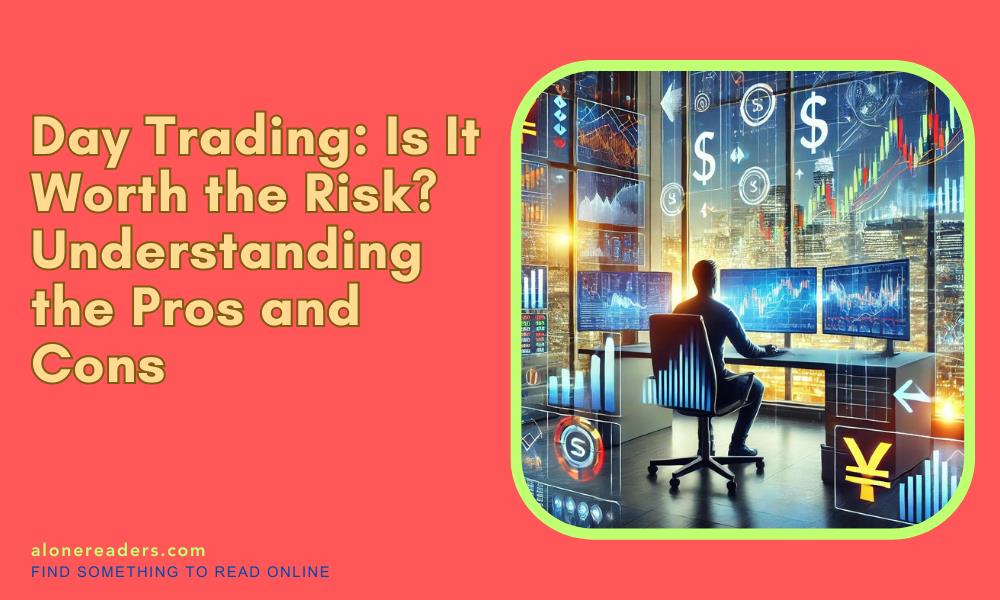
Day trading is an investment strategy where individuals buy and sell financial instruments within the same trading day. The aim is to capitalize on small price movements to make a profit. While the allure of quick profits is strong, day trading is not without significant risks. This article delves into the intricacies of day trading, weighing its advantages and disadvantages, and helping you determine if it’s the right path for you.
Day trading involves executing multiple trades within a single day to exploit price fluctuations in stocks, commodities, or currencies. Unlike traditional investing, where assets are held for extended periods, day traders close out all positions before the market closes, avoiding overnight market risk.
Potential for High Returns: Successful day traders can achieve substantial profits within a short period. The use of leverage amplifies gains, making day trading particularly appealing to those looking for significant returns on investment.
Independence and Flexibility: Day trading offers the flexibility to work from anywhere with an internet connection. This independence is a major draw for many who seek to escape the traditional 9-to-5 job structure.
Excitement and Challenge: For those who enjoy fast-paced environments and constant challenges, day trading provides an adrenaline rush that few other professions can match.
High Volatility: Markets can be extremely volatile, with prices moving sharply in short periods. This volatility can lead to significant losses just as quickly as it can lead to gains.
Financial Loss: The majority of day traders lose money. According to various studies, only a small percentage of day traders consistently make a profit. The potential for financial loss is high, especially for those without a solid trading plan or sufficient experience.
Emotional Stress: Day trading can be incredibly stressful. The pressure to constantly monitor the market and make quick decisions can lead to burnout and emotional distress.
Capital Requirements: Day trading typically requires a substantial amount of capital. The U.S. Securities and Exchange Commission (SEC) mandates that pattern day traders maintain a minimum of $25,000 in their trading accounts.
Education and Training: Before diving into day trading, it's crucial to educate yourself. Numerous online courses, books, and trading simulators are available to help aspiring day traders learn the ropes.
Developing a Trading Plan: A well-thought-out trading plan is essential. This plan should include entry and exit strategies, risk management protocols, and rules for money management.
Risk Management: Implementing effective risk management strategies is vital. This includes setting stop-loss orders to limit potential losses and ensuring that no single trade can significantly impact your trading capital.
Staying Informed: Day traders must stay updated with market news and trends. Economic indicators, company announcements, and geopolitical events can all impact market movements.
Day trading relies heavily on advanced tools and technologies. Here are some essential tools that day traders use:
Day trading is regulated by financial authorities in most countries. In the United States, the SEC and the Financial Industry Regulatory Authority (FINRA) oversee day trading activities. It's important to comply with all regulations, including those related to pattern day trading, which imposes specific requirements on those who trade frequently.
Ethically, day traders should avoid market manipulation and other unethical practices. Transparency and integrity are key to maintaining a fair and orderly market.
Deciding whether day trading is worth the risk depends on several factors:
Conclusion
Day trading offers the potential for high returns, independence, and excitement. However, it comes with substantial risks, including financial loss and emotional stress. Success in day trading requires thorough education, a solid trading plan, effective risk management, and the right tools and technologies.
Ultimately, whether day trading is worth the risk depends on your personal circumstances, including your risk tolerance, financial situation, and passion for trading. Careful consideration and preparation are key to making an informed decision.